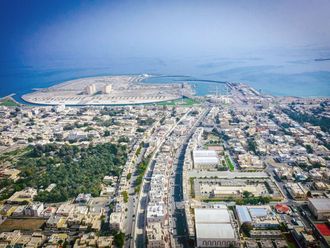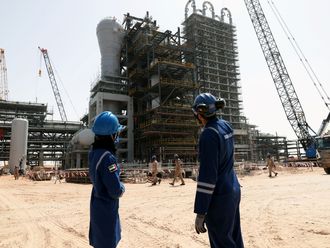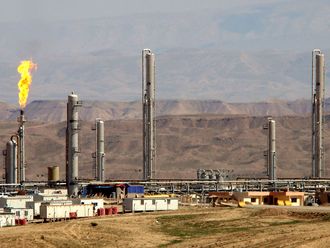New York: Downtown Manhattan, where demand for office space began to surge three years after the 9/11 terrorist attacks, is about to lose its spot as the best performing US market.
Vacancies may exceed 14 per cent of the area's 87 million square feet by late 2011, empty space that's equivalent to four Empire State Buildings and the highest rate since 1997, according to property broker Cushman & Wakefield. That doesn't include the 4.4 million square feet of offices in two towers now under construction at the World Trade Center site. Those are scheduled for completion in 2013.
"The amount of space that's potentially going to come to the market will increase availabilities and put pressure on pricing," said Kenneth McCarthy, Cushman's head of New York- area research. "It will be quite awhile before it can be absorbed."
Lower Manhattan, dominated by financial firms, withstood the commercial property slump better than any other US business district, with more than 90 per cent of offices occupied at the end of last year even as the city lost 67,500 private sector jobs in the 12 months through December. Now open space is rising faster than demand, as Goldman Sachs Group moves into its new downtown building, American International Group relocates its headquarters, and Bank of America shifts operations to its new tower in Midtown.
Downtown New York's success defied the most dire predictions after September 11, 2001, that financial companies would flee. Within weeks of the World Trade Center's destruction, executives of Lehman Brothers Holdings, working out of makeshift offices at a Sheraton hotel, decided to leave the area rather than face a daily reminder of the terrorist attacks. They put their offices up for sale and sublease and paid $748 million (Dh2.747 billion) for a 32-storey building north in Midtown's Times Square, according to a regulatory filing.
Goldman Sachs announced plans after 9/11 to move equity trading and research employees to Jersey City, New Jersey. The bank suspended plans for its new West Street headquarters in April 2005, citing uncertainty about the future of the nearby World Trade Center site. The city and state increased tax-exempt Liberty Bonds available to the company to $1.65 billion.
Even the New York Stock Exchange considered opening a second trading floor outside of downtown as a backup in case of another attack.












